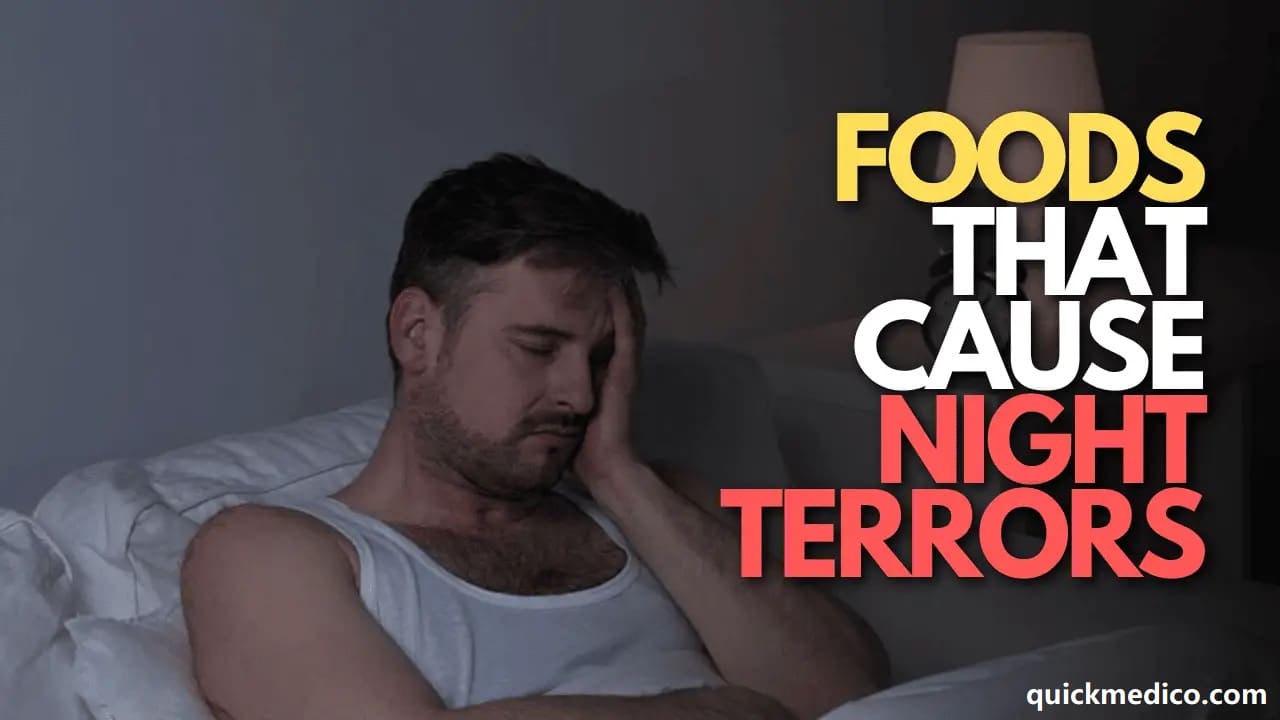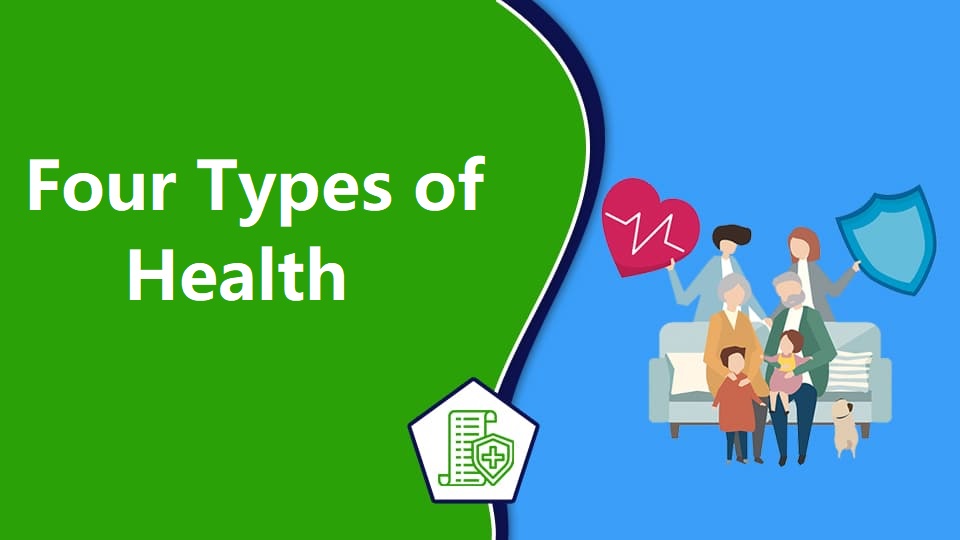8 Foods That Cause Night Terrors you Should Avoid before Sleep 2025

Night terror, also known as sleep terror, is a rare episode of screaming, intense fear, and flailing while still asleep. They usually happen in the first few hours of sleep in children and adults. Night terrors are more common in children, but adults can experience them too. While the exact causes are unknown, certain foods consumed before bed may make them more likely to occur. This article explores 8 foods that can trigger night terrors and should be avoided before bedtime.
What are Night Terrors?
Night terrors are like nightmares, but more dramatic and intense. A person experiencing a night terror will suddenly wake up screaming or crying, but will not be fully awake or alert. They may have a racing heartbeat, heavy breathing, flailing limbs, and be difficult to console. Night terror usually lasts from 1-10 minutes, compared to the often longer periods of waking during a nightmare. After a night terror, the person will fall back asleep and usually does not remember the episode in the morning.
Night terrors typically happen in the first third of the night during non-REM sleep. This means they can be disruptive to the sleep cycle. While partly a genetic condition, certain lifestyle factors can trigger night terror or make it worse. These include lack of sleep, fever, stress, sleep apnea, medications, and consumption of some foods and beverages close to bedtime.
Identifying and avoiding potential food triggers may help reduce the frequency and severity of night terror in sensitive individuals. Here are 8 foods you may want to avoid before bed if you experience night terrors regularly:
The Food That Causes Night Terrors
- Caffeine
Caffeine is a stimulant found naturally in drinks like coffee, tea, soda, and energy drinks. It can also be added to various foods. Consuming caffeine too close to bedtime can interfere with sleep quality and trigger night terrors in some people.
Caffeine blocks adenosine, a chemical that promotes sleepiness. This leads to reduced sleep length, delayed sleep onset, and more frequent awakenings. Caffeine’s effects can last for several hours after ingestion. It takes 6 hours on average to reduce caffeine levels by half, so avoiding caffeine for at least 6 hours before bed is recommended.
If you’re sensitive to caffeine, avoiding it for 10-12 hours before bedtime may reduce night disturbances like night terrors. It’s also wise to limit total caffeine intake during the day.
- Alcohol
Consuming alcoholic beverages before bed is not advised, especially if you experience night terrors.
Alcohol may help induce sleep faster initially, but it reduces restorative REM and deep sleep in the second half of the night. Alcohol is metabolized quickly, causing sleep disruptions and more frequent awakenings. This can trigger night terrors in children and adults.
Alcohol also relaxes your throat muscles, increasing the risk of sleep apnea, which can contribute to night terrors. Habitual heavy drinking has also been linked with increased night terror frequency in adults.
Limiting alcohol intake several hours before bed and the amounts consumed overall can improve sleep quality and minimize episodes of night terrors.
- Chocolate
Chocolate contains stimulant compounds like caffeine and theobromine that can interfere with sleep when consumed close to bedtime.
Cocoa, used to make chocolate, naturally contains caffeine. Milk and dark chocolate have small amounts, but they can still impact sensitive individuals, especially in large amounts.
Theobromine is structurally similar to caffeine. It’s the primary alkaloid in cocoa beans and remains present at higher levels in chocolate. Theobromine stimulates the central nervous system, increasing heart rate and delaying sleep onset. One study found that theobromine increased sleep latency by over 30 minutes compared to a placebo.
Sensitivity to chocolate and its compounds can increase nighttime wakefulness and may raise the likelihood of night terrors in children and adults alike. Avoid chocolate, especially dark varieties, for several hours before bed.
- Spicy Foods
Spicy foods containing hot peppers or chili powder can also keep some individuals up at night and may be linked to night terrors in those prone to them.
The capsaicin in hot peppers binds to pain receptors, increasing heart rate, body temperature, and metabolism. Eating spicy foods before bed may make it harder to fall and stay asleep for those sensitive or unaccustomed to their effects.
Spicy foods can also trigger heartburn, especially when lying down. Nighttime heartburn has been associated with sleep difficulties and awakenings, which could potentially precipitate night terrors in susceptible individuals.
Those who experience night terrors may want to avoid spicy dishes in the evening and limit amounts at other times as well.
- High-Fat Foods
High-fat, greasy, or fried foods often get the blame for poor sleep and bad dreams. But foods high in saturated fat may also play a role in triggering night terrors in prone individuals.
One study found that a higher intake of saturated fat predicted increased sleep terrors in adolescent males. Saturated fats come mostly from animal products like fatty meats, processed meat, butter, cheese, and other full-fat dairy products.
High fat intake may impair sleep by causing digestive issues like reflux, nausea, or stomach pain when lying down. Long-term high saturated fat intake also leads to weight gain and obesity, both linked to impaired sleep quality and night terrors.
Limiting high-fat fried and greasy foods in the evenings and overall can support better sleep outcomes for adults and kids prone to night terrors.
- Sugary Foods and Beverages
Consuming foods and drinks high in added sugars too close to bedtime can lead to unstable blood sugar levels that disrupt sleep and provoke night terrors in susceptible individuals.
Simple sugars like sucrose, fructose, and glucose enter the bloodstream quickly, causing an initial energy boost followed by a crash. The spike and rapid drop in blood sugar during sleep can trigger hormonal changes that disrupt sleep cycles and cause awakenings.
Children given bedtime snacks high in sugar show significantly more night awakenings. Nightly awakenings from fluctuating blood sugar may increase the occurrence of night terrors in susceptible children.
Beverages high in added sugar, like sodas, fruit juice, flavored milk, and sweet tea, are best avoided in the evenings. Limit sugary desserts and candies close to bed as well.
- Refined Carbs and White Bread
Refined grains like white bread, white rice, pasta, and baked goods lack fiber and break down quickly, similar to sugar. Eating these refined carbs before bed can cause unstable blood sugar and sleep disruptions like night terrors.
In one controlled study, young healthy men reported less restful sleep after consuming white bread at lunch compared to whole grain sourdough bread. Refined grains may amplify nightly dips and spikes in blood sugar.
The fiber and fat in whole grains cause more gradual digestion and stable blood sugar levels. Consuming whole grains over refined versions during the day and minimizing carbs at night supports better sleep quality.
- Citrus Fruits
Citrus fruits like oranges, grapefruit, and lemons are generally healthy. However, consuming them before bed may trigger symptoms that disrupt sleep and increase night terror risk for some people.
Citrus fruits are acidic and can provoke heartburn and indigestion, especially when lying down. Acid reflux and nighttime heartburn are linked with more sleep impairments and awakenings.
Some compounds in citrus may also irritate the bladder, increasing nighttime urination that can disturb sleep. Individuals with overactive bladders or GERD may especially want to avoid citrus fruits in the evenings.
Tips to Reduce Night Terrors
Making dietary modifications to avoid potential food triggers is one proactive step to help reduce night terrors. Here are some additional tips that may help:
- Maintain a regular sleep-wake schedule and ensure adequate sleep nightly. Sleep deprivation is a major risk factor.
- Reduce evening fluid intake to decrease th chances of nighttime urination.
- Keep bedrooms cool, dark, and quiet.
- Lower stress through yoga, meditation, counseling, or other methods.
- Treat underlying issues like sleep apnea or GERD if present.
- For children, scheduled awakenings may shorten night terror duration.
- Medications like tricyclic antidepressants or sedative hypnotics can help in severe cases, under a doctor’s care.
Discuss any persistent sleep issues with your physician. Keeping a sleep and diet log may help identify lifestyle factors that contribute to or worsen night terrors. Targeted dietary and lifestyle changes may help reduce their occurrence.
Frequently Asked Questions
- Are night terrors dangerous?
Night terrors are generally not dangerous, despite being dramatic. They occur during deep, non-dream sleep and involve no conscious awareness. While violent flailing can very rarely cause injury, most kids and adults will return to sleep normally afterward. Consult a doctor if they occur often, cause distress, or fail to resolve with age.
- Can certain vitamins or supplements help with night terrors?
While claims exist on the internet, no strong scientific evidence proves that vitamins, minerals, or herbal supplements can prevent night terrors. General tips like maintaining a regular sleep schedule, winding down before bedtime, and avoiding trigger foods/drinks are most important. Melatonin shows mixed results but may help some. Consult a doctor before giving any supplements, especially to children.
- Can dehydration cause night terrors?
There are no specific studies linking dehydration with increased night terrors. Mild dehydration may disturb sleep cycles and quality, which could theoretically trigger night terrors in prone people. Drinking enough fluids during the day is advised. Limiting fluid intake 1-2 hours before bed reduces awakenings to urinate, which interrupts sleep. Overall, dehydration does not appear to be a proven cause of night terrors.
- Do dairy foods cause night terrors?
No direct link exists between dairy intake and night terrors. However, eating any foods that cause digestive issues before bed could potentially trigger them in sensitive people. Some report dairy causes heartburn or stomach discomfort when lying down. High-fat dairy may also impair sleep. Limiting rich dairy foods for a couple of hours before bed is reasonable to see if symptoms improve for those prone to night terrors.
- How are night terrors different from nightmares?
Night terrors differ from nightmares in several ways: they occur during deep sleep vs REM sleep, involve no memory of the content, last 1-10 minutes vs longer nightmare periods, show more physical symptoms like racing heartbeat, involve intense fear but no coherent storyline, and are less common in adults vs kids. Night terrors also cause more difficulty in awakening the person.
Conclusion
Night terrors can disrupt sleep and be troubling for kids and adults alike. Avoiding certain foods and drinks in the evening appears to reduce the likelihood of night terrors in prone individuals. Limiting caffeine, alcohol, chocolate, spicy or acidic foods, and high-fat and sugary items at night can support better sleep quality for those experiencing regular night terrors.
Maintaining proper sleep hygiene and managing stress are also key. For recurring or severe night terrors interfering with daily function, consult your physician. With the right dietary tweaks and lifestyle habits, night terrors can often be minimized or resolved.



